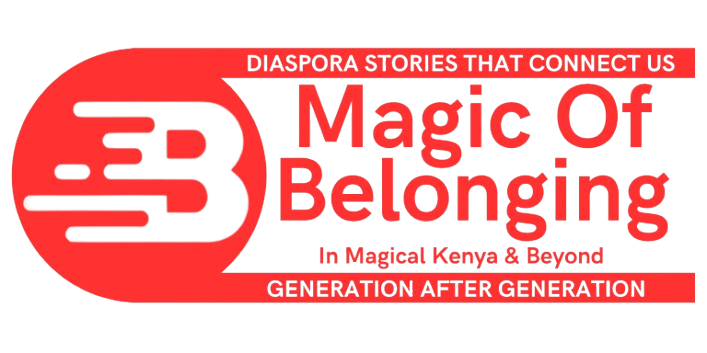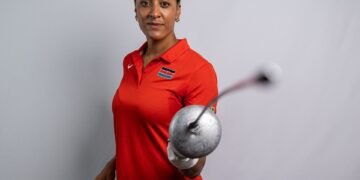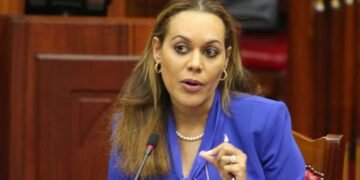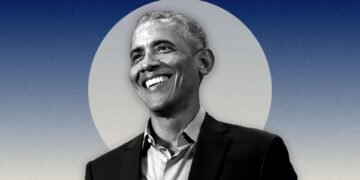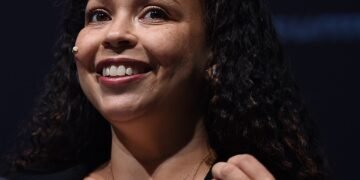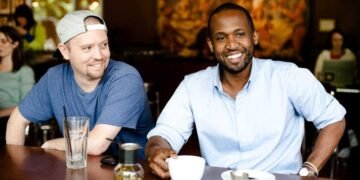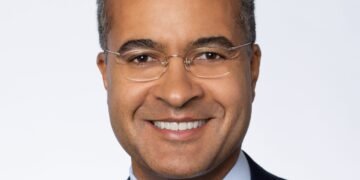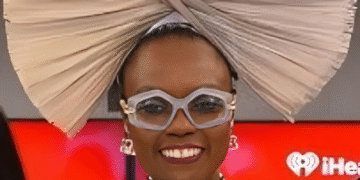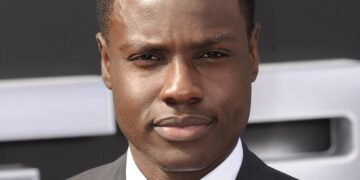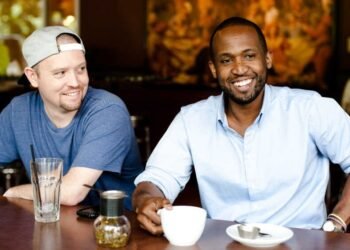Before she ever walked into a policy meeting or stood before a courtroom pleading for immigrant protections, Annette Karanja was just a little girl flying across oceans with her family’s hopes folded into her suitcase. Kenya was the place where her bones remembered warmth—where neighbors raised each other’s children and language moved like music across homesteads. But Baltimore would be the city that tested everything she carried: her resilience, her heritage, her sense of who she was allowed to be.
She arrived in the U.S. as part of the 1.5 generation—neither fully from there, nor yet from here. And in that in-between, she built a life that would turn her into one of Baltimore’s fiercest voices for immigrant justice, a quiet revolutionary in headwraps and courtroom flats, who taught America that the way forward isn’t assimilation—it’s weaving in.
The Day the Air Went Cold
When President Trump announced sweeping deportation raids in 2019, fear moved through Baltimore’s immigrant corridors like smoke.
Mothers stashed emergency guardianship letters under mattresses. Children memorized lawyer phone numbers. Families stopped going to work, to church, to school—because the wrong step could mean exile. But it wasn’t fear in general that haunted Annette—it was the unevenness of it. While East African and Latinx families lived in hiding, their white Eastern European counterparts barely blinked.

“I’m a white man. I’ll be fine,” one Russian immigrant told a local reporter. “But Black and brown immigrants? We all knew. We weren’t fine.”
For Annette, this was personal.
She saw how deportation didn’t just tear families apart—it erased entire communities from the civic landscape. It wasn’t just about policy. It was about visibility, dignity, and who gets counted when America tallies its people.
“We were here,” she would later say, “and thriving. But no one noticed.”
Kenya in Her Bones, Baltimore in Her Hands
If America didn’t see her people, she would build something that did.
What Annette did next wasn’t rooted in academic theory or nonprofit playbooks—it came straight from Kenyan survival architecture: the communal fire, the harambee, the belief that we rise only when we pull together.
And she insists on an audacious truth: we belong here—not because we have earned it, but because we are already building it.
She co-founded the Elimu Center—a sanctuary for Baltimore’s East African diaspora, named after the Swahili word for education. But what it really offered was orientation—not just to a new country, but to a new way of belonging.
Inside Elimu’s walls, immigrants found:
- Legal navigation for guardianship and estate planning, so children wouldn’t become collateral damage in deportation raids.
- Credential recognition tools, so Kenyan nurses and engineers could stop mopping hospital floors and start leading hospital units.
- Language and culture classes for youth whose roots were slipping through their fingers in the rush to fit in.
“We built a shamba,” Annette says. “A garden where our roots could regrow in this foreign soil.”
And while the outside world saw immigrants as liabilities, Annette was busy replanting legacy.
From Kitchen Tables to Policy Tables
It didn’t stop at Elimu. Annette knew change had to scale.
So she entered the halls of government—not as a politician, but as a cultural translator. In 2023, she helped found the Baltimore County New Americans Task Force—and pushed it to do more than host ribbon-cuttings.
She insisted on hard truths. On naming the invisible.
“Nothing for us, without us,” she told them, her voice quiet but unmistakable.
Under her influence, the task force shifted:
- From offering “jobs” to advocating for career ladders, especially in STEM and healthcare.
- From offering translated pamphlets to prioritizing language justice, making Amharic and Swahili essential languages for county services.
- From fragmented programs to one-stop welcome centers, where immigrants could access legal, housing, and wellness support in one place.
At sustainability open houses and town halls, she showed up for East Africans who were being left out of housing, transit, and climate conversations—not because they didn’t care, but because they weren’t being spoken to in languages they understood.
“Sustainability doesn’t mean anything if it excludes people who live here,” she reminded officials.
The Diaspora Daughter With a Nation-Building Soul
Annette’s power comes from standing at the seam between Kenya and America—and refusing to choose one over the other.
She brings the courage of her ancestors, the organizing logic of harambee, and the restorative love of ubuntu—I am because we are—into a nation that still hasn’t figured out what community truly means.
She rallies community on diaspora media platforms like The OneMic Show, urging Kenyan-Americans to vote, organize, and lead. She mentors young immigrants navigating broken systems. And she insists on an audacious truth: we belong here—not because we have earned it, but because we are already building it.
“Our communities aren’t problems to solve—we’re the architects redesigning Baltimore’s future.”
And it’s working. In boardrooms and school districts, her fingerprints are now everywhere. And when Baltimore officials release immigration data, it includes her people. When families need help, Elimu is the first door they knock. When new policies roll out, Annette is at the table, asking: “But what about the single mother in Parkville who doesn’t speak English? What about her?”
The Necklace That Won’t Break
In Kikuyu and Swahili cultures, the ushanga—a beaded necklace—symbolizes unity through diversity. Every bead matters. Pull one strand too tight or let one fall away, and the whole necklace breaks.
Annette sees America the same way.
“We are the ushanga. Every immigrant, every culture, every accent, every memory of home. If you remove one of us, the design loses its meaning.”
Her work isn’t just advocacy. It’s repair. It’s revival. It’s remembering.
And so she continues—quietly powerful, ferociously Kenyan, unapologetically American—braiding Baltimore’s future from the strands that others tried to snip away.
“Our strength is not in blending in, but in weaving our distinct threads into the tapestry of this nation—creating a pattern stronger and more beautiful than any single strand could ever be.” — Annette Karanja
